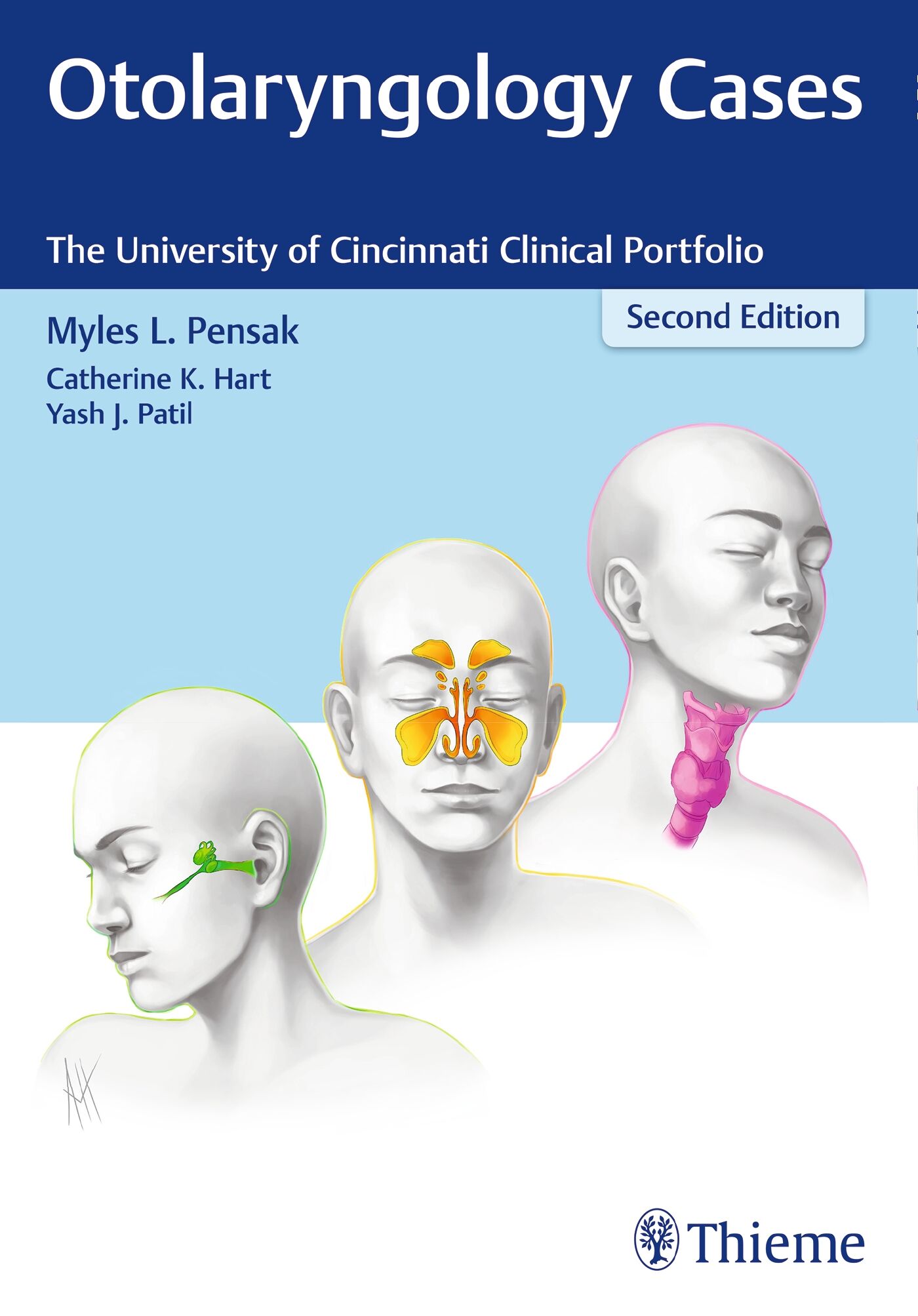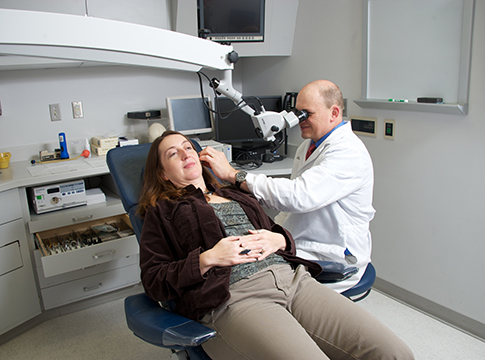How to Schedule a Hearing Test with a Certified Hearing Specialist
How to Schedule a Hearing Test with a Certified Hearing Specialist
Blog Article
Exploring the Field of Otolaryngology: What to Expect When You Consult an ENT
Otolaryngology, commonly referred to as ENT, includes the medical diagnosis and therapy of throat, nose, and ear problems. For those experiencing associated issues, seeking advice from an ENT specialist can offer quality and relief. Recognizing what to expect throughout such consultations is essential for efficient communication and care. This review will certainly outline key facets of the ENT experience, consisting of typical reasons for visits and the processes entailed in diagnosis and treatment.

Understanding Otolaryngology: A Review
Otolaryngology, typically described as ENT (Ear, throat, and nose) medication, is a customized branch of medicine that focuses on the diagnosis and treatment of problems impacting these vital areas of the human body. This area includes a large range of conditions, consisting of those pertaining to hearing, balance, breathing feature, and speech. Otolaryngologists are educated to manage both medical and surgical treatments, using sophisticated techniques and innovations. Their competence expands beyond standard disorders, attending to issues such as allergies, sinus infections, and hearing loss. In addition, they play a crucial function in the monitoring of head and neck cancers cells, offering comprehensive treatment customized to specific patient requirements. On the whole, otolaryngology remains vital for preserving health and high quality of life in afflicted people.
Typical Reasons to See an ENT Specialist
Lots of individuals seek the competence of an ENT professional for a range of factors, reflecting the diverse nature of conditions that affect the ear, throat, and nose. Typical issues consist of chronic sinus problems, which typically results in persistent nasal congestion and face pain. Allergic reactions and their connected signs, such as sneezing and itching, likewise prompt sees to these professionals (ENT Doctor). Hearing loss, whether sudden or steady, is an additional significant reason for appointment. In addition, individuals may look for examination for throat conditions, consisting of consistent hoarseness or swallowing troubles. Sleep apnea, identified by disrupted breathing throughout sleep, is regularly addressed by ENT experts also. Each of these conditions highlights the significance of specialized treatment in managing complex ENT-related health concerns
Planning for Your ENT Consultation
When getting ready for an ENT consultation, it is important to gather pertinent details and think about any certain concerns. Clients should assemble a thorough clinical background, including previous ear, nose, or throat problems, surgical procedures, and existing drugs. Documenting signs-- such as severity, duration, and frequency-- can give valuable understandings for the ENT professional. Additionally, people need to prepare a list of questions they wish to ask, ensuring that all problems are resolved throughout the check out. Bringing along any type of pertinent medical documents or examination outcomes can additionally aid the ENT in understanding the patient's condition. People must confirm their consultation details, consisting of date, time, and area, to lessen any kind of last-minute confusion. Appropriate preparation can enhance the effectiveness of the appointment and cause far better end results.
What to Anticipate During the Appointment
As the consultation begins, the patient can anticipate to participate in a detailed discussion with the ENT expert about their signs and clinical history. The professional will make inquiries about the period, frequency, and intensity of symptoms such as hearing loss, nasal congestion, or aching throat. In addition, the client's previous medical conditions, drugs, and any relevant family members background will be reviewed, aiding the specialist in forming a total understanding of the person's health. The ENT might likewise ask regarding way of living factors, such as exposure to toxic irritants or allergens. This open dialogue establishes a foundation for the assessment, guaranteeing that the individual's worries are addressed and establishing the phase for any necessary assessments or suggestions for treatment.
Analysis Examinations and Treatments in Otolaryngology
A series of diagnostic tests and procedures are crucial in otolaryngology to properly review and diagnose conditions affecting the nose, ear, and throat. Typical examinations consist of audiometry, which gauges hearing feature, and tympanometry, assessing center ear pressure. Nasal endoscopy allows visualization of the nasal passages and sinuses, while laryngoscopy analyzes the throat and vocal cords. Imaging techniques, such as CT scans and MRIs, offer comprehensive sights of head and neck frameworks. Allergic reaction testing may likewise be carried out to determine triggers for sinus or breathing problems. These diagnostic devices enable ENT specialists to develop a complete understanding of people' problems, guaranteeing tailored and reliable administration plans. Appropriate medical diagnosis is essential for successful treatment results in otolaryngology.
Treatment Options Offered by ENT Specialists
ENT experts offer a selection of therapy choices tailored to deal with certain conditions affecting the nose, throat, and ear. These treatments vary from traditional techniques, such as medicine and way of life modifications, to even more invasive procedures. Allergies might be handled with antihistamines or immunotherapy, while chronic sinus problems may require nasal corticosteroids or sinus surgical procedure. For hearing loss, ENT experts frequently advise listening device or surgical treatments like cochlear implants. In cases of throat conditions, options can include speech therapy or procedures to eliminate blockages. Additionally, they might offer support for managing sleep apnea, including the usage of CPAP gadgets or medical interventions. On the whole, the objective is to improve patients' lifestyle through personalized care and efficient therapy approaches.
When to Look For Follow-Up Treatment With an ENT
Acknowledging when to look for follow-up treatment with an ENT professional is essential for managing ongoing signs or complications associated with ear, throat, and nose conditions. Patients ought to consider scheduling a follow-up visit if signs linger despite first treatment, such as chronic ear discomfort, nasal congestion, or their explanation throat discomfort. Modifications in hearing, equilibrium concerns, or uncommon nasal discharge may additionally necessitate further examination. Furthermore, if a client experiences adverse effects from recommended medicines or has actually undertaken an operation, follow-up care is necessary to check recuperation and deal with any problems. Prompt consultations can guarantee reliable administration of conditions, prevent prospective problems, and provide peace of mind regarding one's wellness. Looking for follow-up care promotes aggressive health and wellness management in otolaryngology.
Regularly Asked Concerns

What Credentials Should I Try to find in an ENT Expert?
When looking for an ENT expert, one should seek board accreditation, relevant experience, and solid client reviews. In home addition, effective communication skills and a thoughtful approach can considerably improve the overall therapy experience.
How Do I Pick the Right ENT for My Requirements?
Selecting the appropriate ENT expert entails examining their qualifications, experience, and person reviews (Voice). It is necessary to contemplate their interaction design and approach to therapy, guaranteeing they align with the person's particular health needs and choices
Exist Any Dangers Connected With ENT Procedures?
The dangers connected with ENT procedures may include infection, bleeding, anesthesia problems, and prospective damage to bordering frameworks. People should talk about these risks with their physician to comprehend specific concerns and assurance educated choices.
Exactly How Can I Handle Stress And Anxiety Prior To My ENT Appointment?
To manage stress and anxiety prior to a consultation, individuals can practice deep breathing exercises, picture favorable outcomes, prepare questions ahead of time, and look for assistance nasal wash from friends or household, promoting a feeling of confidence and calmness.
What Should I Do if I Experience Adverse Effects From Therapy?
The individual should promptly report them to their health care copyright if side results from therapy take place. Changes to treatment or added interventions may be needed to assure safety and security and performance in handling their problem - ENT Doctor. As the examination starts, the individual can anticipate to engage in a thorough conversation with the ENT expert concerning their signs and clinical background. These analysis tools make it possible for ENT professionals to create a complete understanding of patients' problems, making sure customized and effective monitoring plans. ENT professionals use a variety of therapy choices tailored to resolve certain conditions influencing the ear, nose, and throat. When looking for an ENT expert, one should look for board certification, appropriate experience, and solid client reviews. Picking the right ENT specialist includes reviewing their credentials, experience, and person testimonials
Report this page